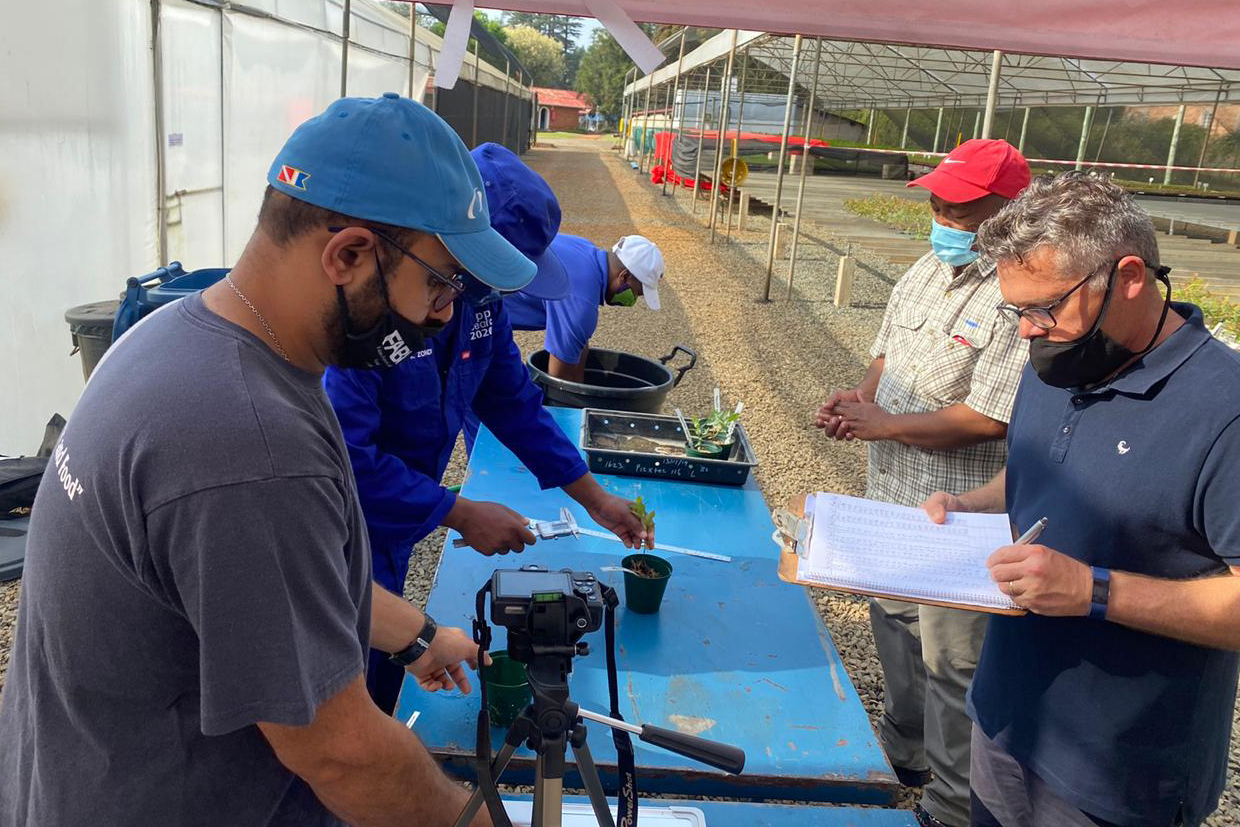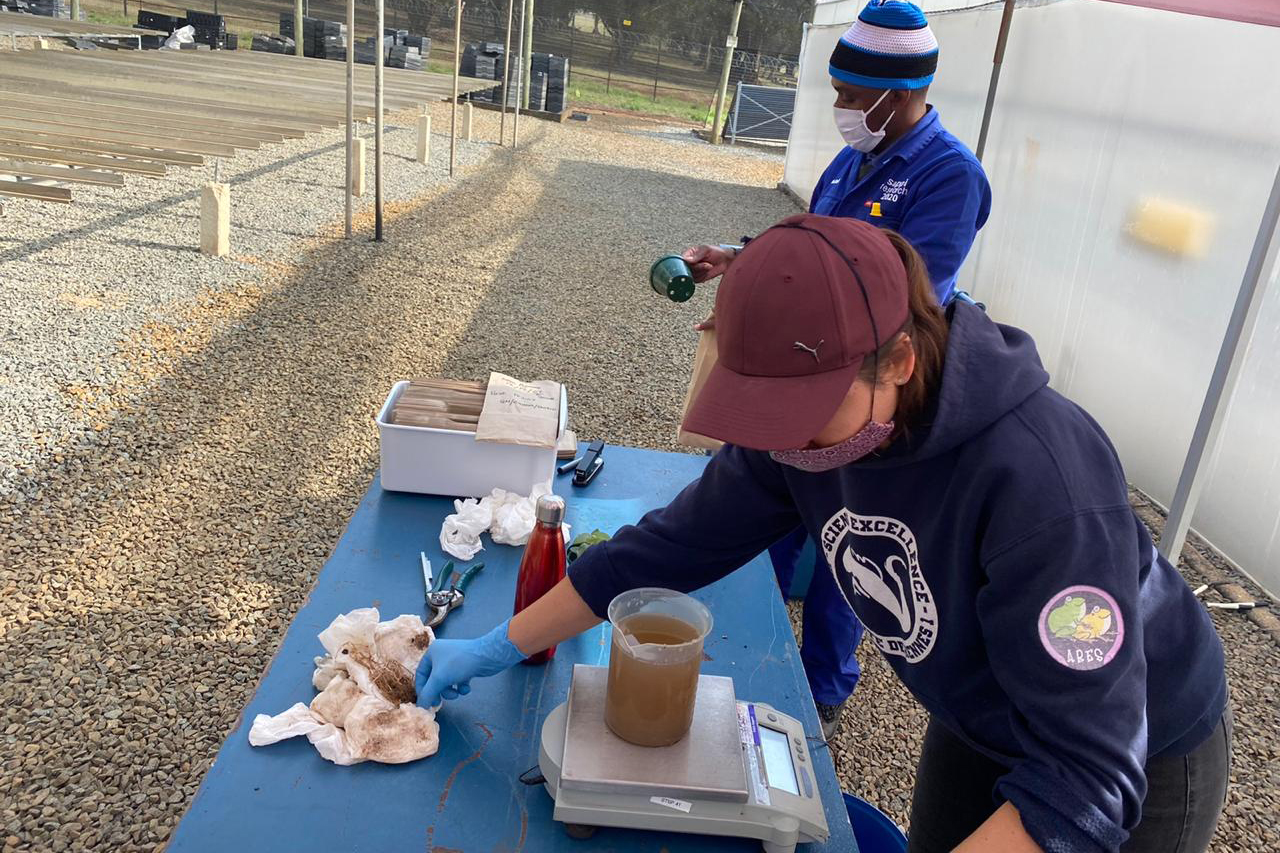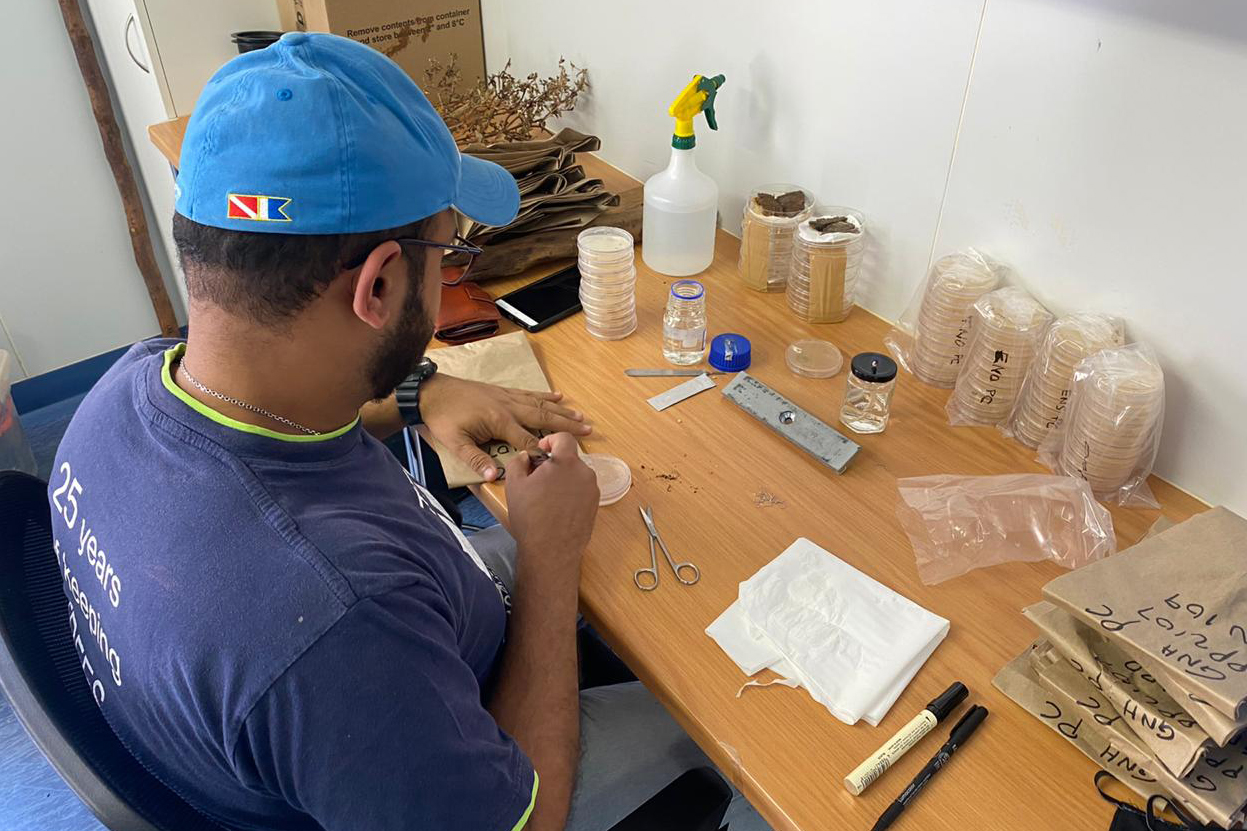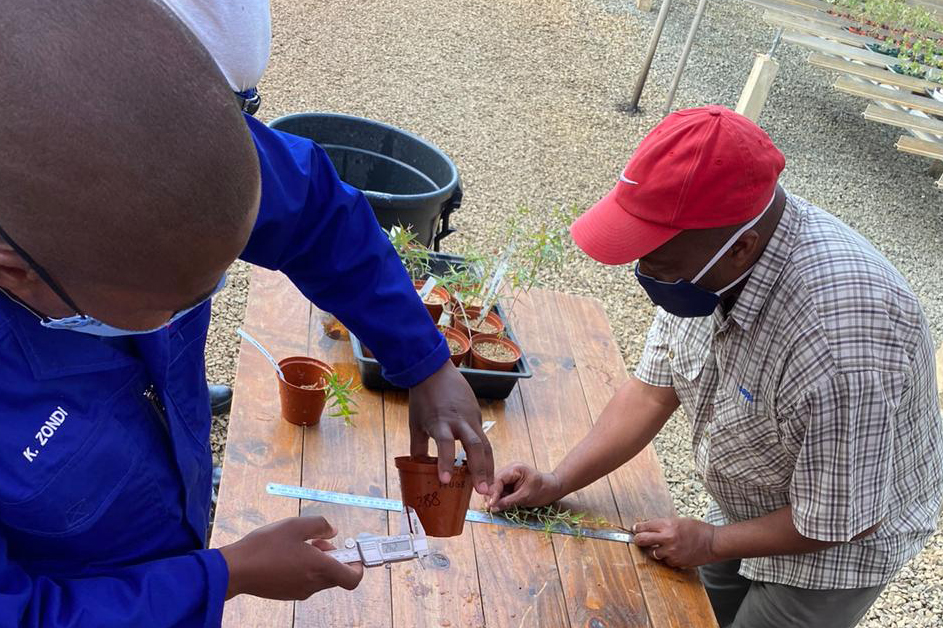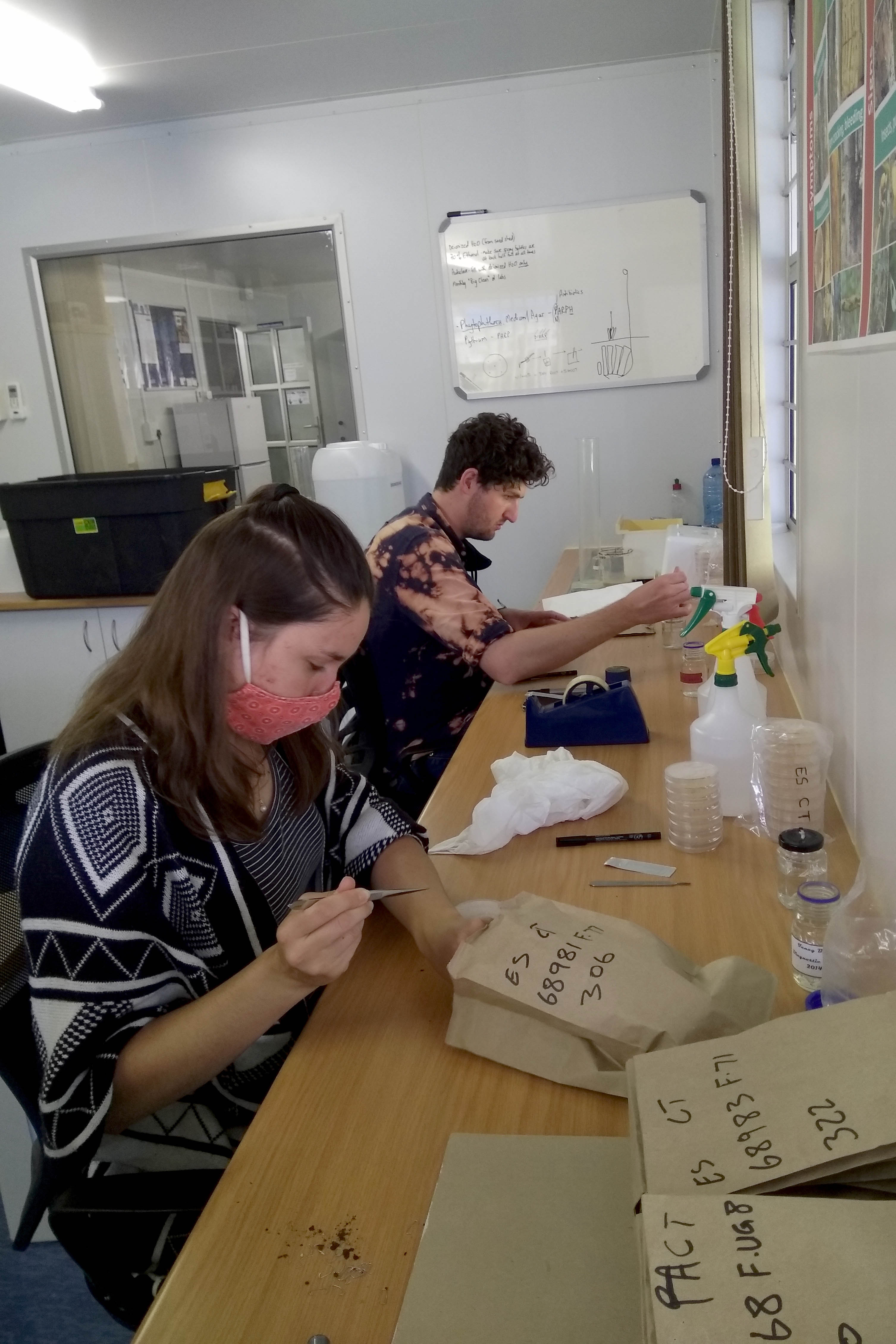Harvesting Phytophthora pathogenicity trials in the KZN midlands 2020-10-14
Over the past few years there have been reports of root-associated post-planting mortality of Eucalyptus nitens in all the commercial forestry regions of eastern South Africa. DNA fingerprinting of these E. nitens trees affected by post-planting mortality revealed that most of these affected trees were selfed individuals but the pathogen responsible for this disease could not be identified conclusively. However, based on the symptoms observed amongst the affected trees, evidence pointed towards Phytophthora as a possible candidate.
In 2018, Dr Tanay Bose an industry-funded postdoctoral Fellow under the Tree Protection Co-operative Programme (TPCP) at FABI initiated the first long-term Eucalyptus-Phytophthora trial in collaboration with Sappi Forests. As part of this trial, during the week of 6 June, Tanay (along with Sandisiwe Jali and Rosa Knopperson) inoculated 180 seedlings each of E. nitens and Eucalyptus smithii with Phytophthora cinnamomi and Phytophthora alticola. The set of E. nitens seedlings included three genotypes: selfed, outcrossed and hybrid (Eucalyptus grandis × E. nitens) whereas all E. smithii were outcrossed individuals. During the week of 5 October and three months after these inoculations, Tanay, along with FABIans Josephine Queffelec and Matthew Jackson, harvested this trial with the assistance of Sappi's scientific and non-scientific staff members. Pathogenicity was measured by recording, inter alia, the fresh root and shoot weights, root volumes, plant heights, the diameter of the root collar. Isolations were also done to fulfil Koch's postulate. During harvesting, the team noticed that the hybrid genotype had a better tolerance to the tested Phytophthora spp. than selfed or outcrossed varieties.


